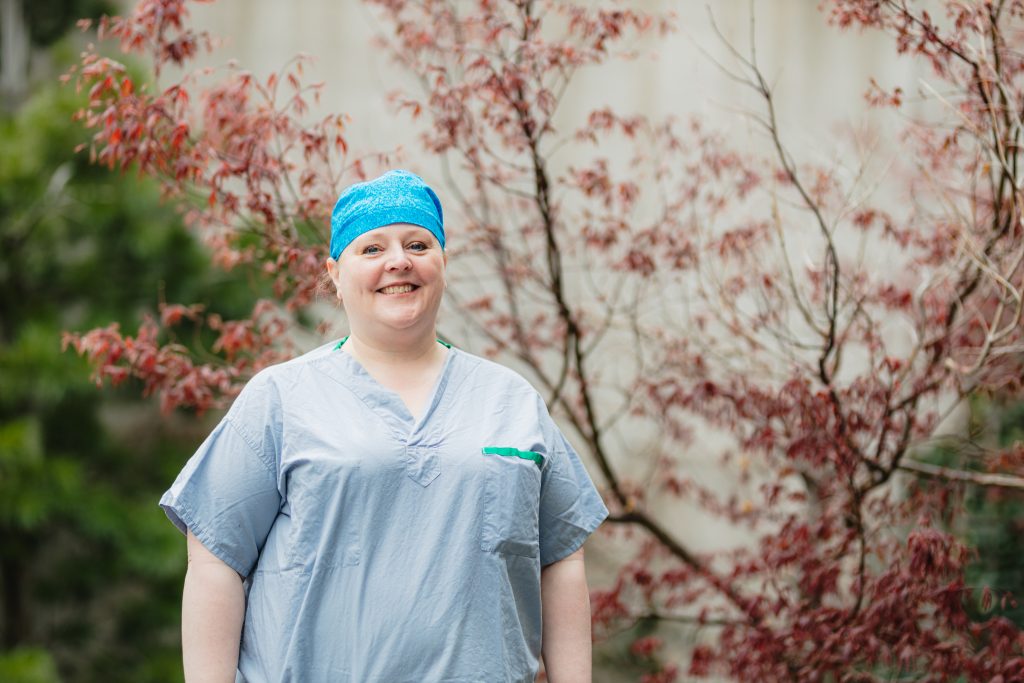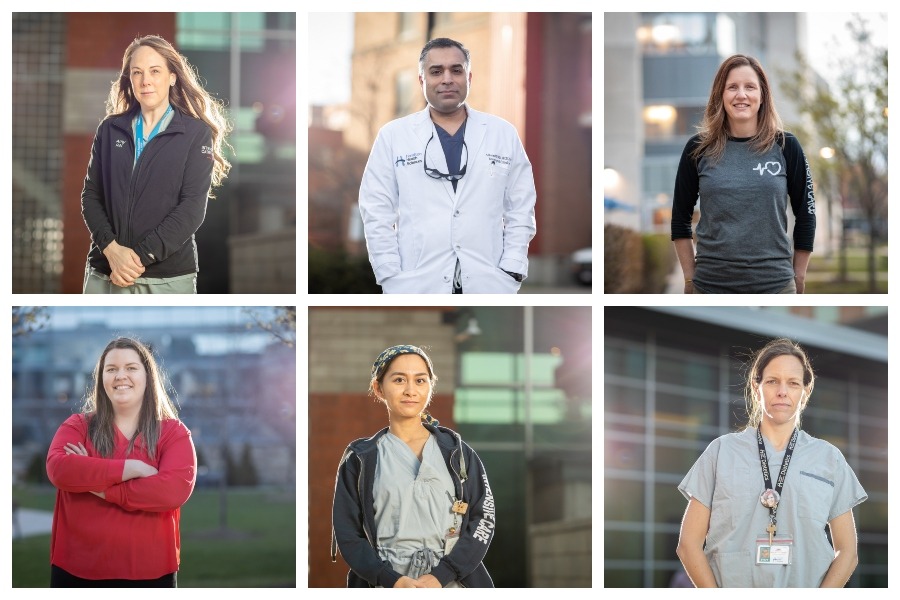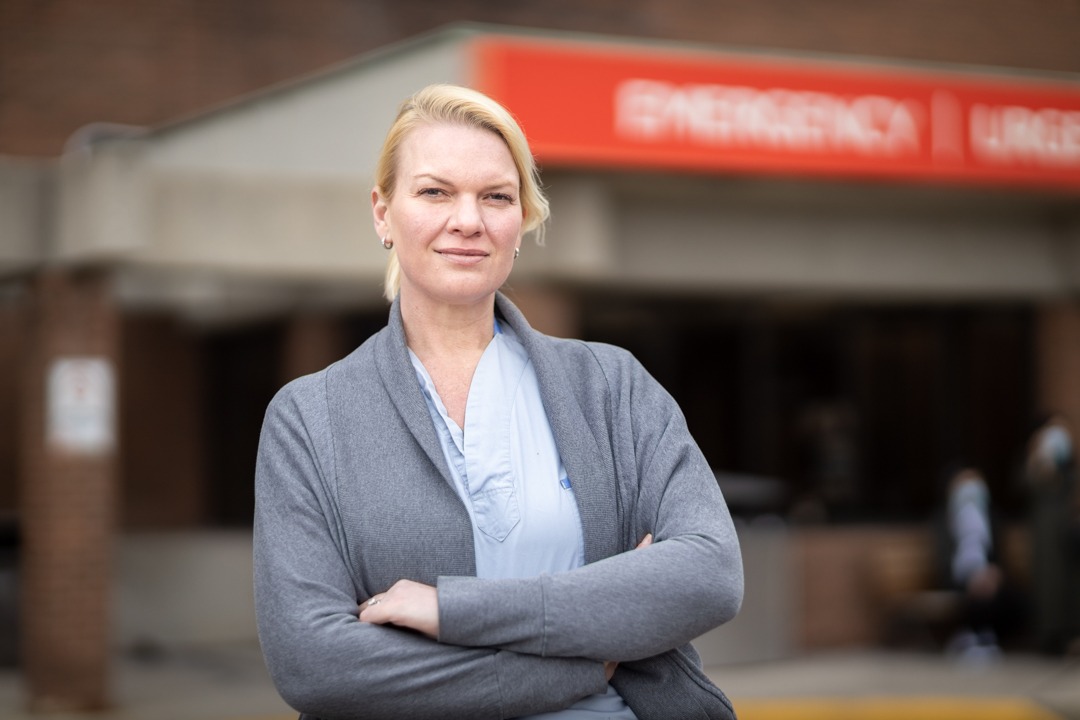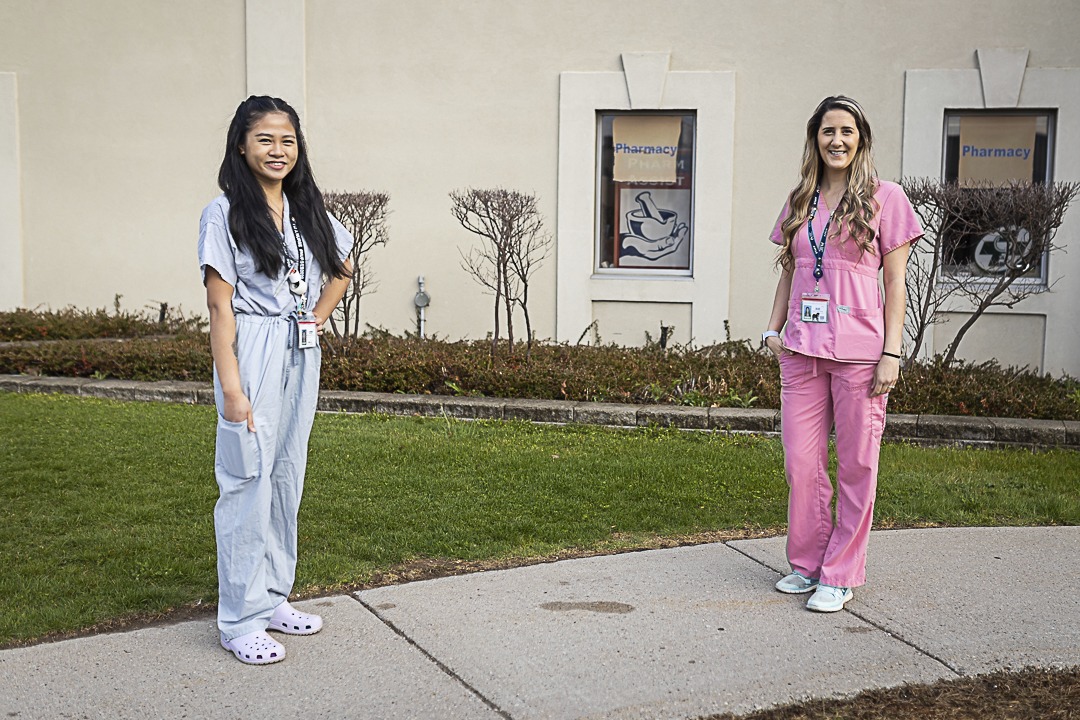
Staff find different roles “challenging” but “an honour”
The third wave of the pandemic has created a surge of severely sick COVID patients in Hamilton and across the province. Hamilton Health Sciences (HHS) is caring for our community and for COVID patients from other areas.
In order to take care of the overwhelming number of patients who need intensive care, including help with breathing, HHS continues to convert areas of the hospital to treat them. So far, HHS has opened 38 new intensive care unit (ICU) beds which require teams of highly trained doctors, nurses, respiratory therapists and other staff to provide care.
A debt of gratitude
More than 230 staff have answered the call to leave their regular positions, their teams, and their patients, to temporarily work in other areas of the hospital where they are needed most.
“We are so grateful to our staff for their continued readiness to adapt to this ever-changing environment and to care for our patients where they are needed,” says Leslie Gillies, interim vice president of community medicine and population health.
Here are just some of the individuals who are taking on new responsibilities and caring for patients in new ways.
“It’s an honour to work alongside them”
Jacki Longmire has been caring for cancer patients for eight years at Juravinski Hospital and Cancer Centre, first as a health care aide and then as a nurse.
When she saw there was a call for volunteers to work in the ICU, she says she was motivated by two factors:
“I deeply respect ICU nurses for their highly specialized knowledge and skills. It’s an honour to work alongside them and gain perspective and knowledge that I may apply to my own practice,” she says.
“I also feel an obligation to assist in whatever way I can. Just like everyone else, I am exhausted by the implications that COVID-19 has placed on society as a whole. I’m not comfortable sitting back and watching others put out the flames, especially when it comes to fellow nurses.”
“I became a nurse to help people”
Veronica Raposo has never worked with adult patients. She has never worked in critical care. Normally, she works as a pediatric nurse at McMaster Children’s Hospital.
While she was nervous about her new assignment at the Juravinski Hospital, justifying it was simple.
“At the end of the day, I became a nurse to help people,” she says. “I’m so happy to do that in any way I can during my time in the ICU.”
She is looking at this time as an opportunity to learn new skills.
“It’s nice to feel valuable and an asset to a team that is stretched so thin”
Respiratory therapist (RT) Doris Franklin has worked at HHS for almost 30 years. When HHS made the difficult decision to temporarily close the operating rooms at West Lincoln Memorial Hospital to redeploy staff for the COVID surge, Franklin shifted to support Juravinski Hospital’s ICU, in one of the designated regional COVID-19 hospitals.
“It’s nice to feel valuable and an asset to a team that is stretched so thin,” she says. “It’s an honour to work with such sick patients and be able to use my skill set during the pandemic while bringing awareness to my profession.”
Every area of the hospital is affected
When staff move to the ICU, others are needed to backfill some roles like a domino effect. Not everyone has the qualifications for critical care but many have been redeployed to other areas that are now short-staffed.
To cope, some areas are ramping down services, while others are managing in other ways, with team-based models of care and virtual care.
In all areas of the hospital, managers, clinical educators, the HHS resilience team, and co-workers are all supporting one another, providing leadership, practical tools and information, and a shoulder to lean on.
“It’s only my first day here and I already feel the intensity”
Nurse Vivian Wei Li has been redeployed to an acute medicine unit from her regular position in the regional rehabilitation centre caring for patients undergoing spinal cord injury rehabilitation.
“It’s only my first day here and I already feel the intensity and the heavy workload,” she says. “It’s challenging.”
A message from staff on the front-lines
On behalf of many staff who have been tirelessly fighting this pandemic, nurse Longmire has an important message:
“I pray every day for an end to this and that people will follow public health directions,” she says. “It is increasingly frustrating when met with individuals who don’t take this seriously. It’s caused a great deal of strain on everyone. We need everyone’s help to make it go away, so we can all get back to our families and friends.”








